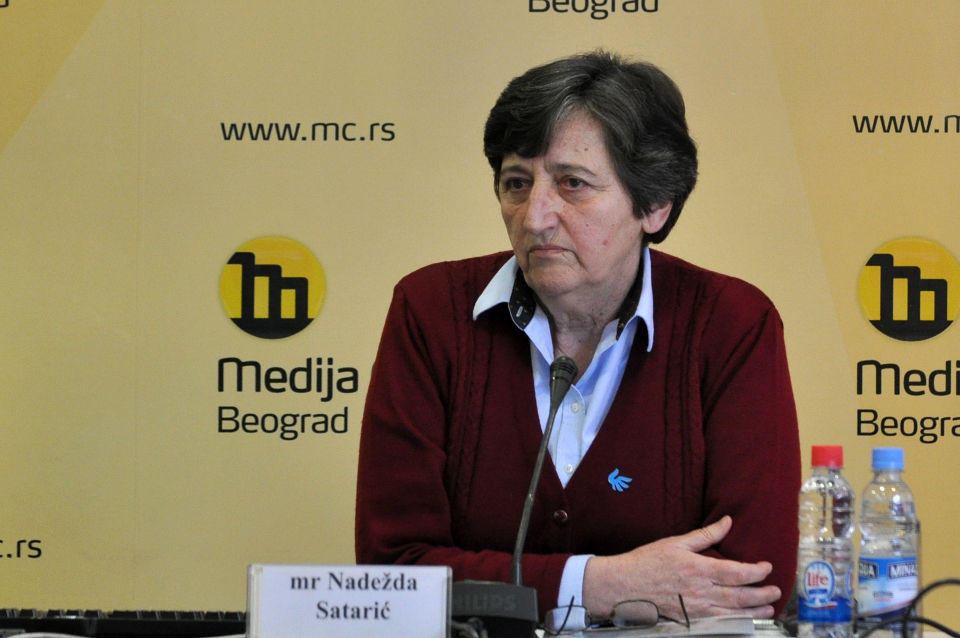In the words of Nada Sataric: "Now is the time to acknowledge women’s unpaid care work"
Nada Sataric, founder of Amity NGO, is a vocal advocate for the rights of older persons in Serbia, and women in particular, as one of the most vulnerable groups. With the COVID-19 outbreak, existing vulnerabilities have deepened, putting older persons at higher risk. In addition, lockdown measures have banned older Serbian nationals from leaving their homes. Sataric speaks to UN Women about the situation and how her NGO provides solutions under the UK-UN Women programme "Redistribution of unpaid care work".Date:

![]()
As many as 300,000 people over the age of 65 live alone in Serbia. Many of them live in small apartments without a balcony or a yard. They have no one to have morning coffee with or meet in the halls of the building to exchange a few words. Many of them have underlying health conditions, such as diabetes, cardiovascular disease, asthma... Older women are hit hardest as they, in addition to all, often bear the burden of unpaid care work at home. Now, with the coronavirus pandemic and lockdown, their feelings of anxiety, loneliness and depression have only increased.
Most of them have accepted and somehow adapted to the new reality. In the first week since Serbia introduced a complete lockdown for people over 65 (on 17 March 2020), many were confused and concerned over the situation, what it would all look like, whether they would have enough food, etc. But when they saw that everything is functioning well – that volunteers or family members provide them with all supplies, that their pensions are arriving on time and being delivered to their home addresses, and that there is enough medicine in pharmacies – they relaxed a bit.
However, once assured that these basic needs were in place, different anxieties and concerns have populated their minds. It is not easy to sit at home patiently waiting for the outbreak to come to an end, not knowing when that will be. Older women are especially affected, as loads of housework now fall on them. This is why we decided to open a Counselling Centre, to provide support over the phone to those older persons in need, but also to their caregivers, who are often women. We don’t want them to feel lonely, sad or overwhelmed with all the housework and care for family members.
It turns out that most of the calls we get are from either older or younger women who care for their older relatives and family members, who found themselves in an endless cycle of cooking, cleaning and care at home during the lockdown. Now is the time to acknowledge this unpaid care work and redistribute this burden, which can adversely affect a woman’s health. Men and women should share all the work at home and make it easier for the whole family in this situation and in general.
Sometimes we get calls from those feeling lonely who just want to talk, share their views or concerns. Some have this urge to break the rules and just go out and buy groceries on their own, as they claim volunteers cannot find all the items they want at affordable prices. Sometimes they suffer from dementia and have no clue that the curfew is about, so they stick to their old routines.
But we are at their disposal every day, to listen, understand and help them cope with this new reality. What is more important than to be there for each other in times of crisis like this?”